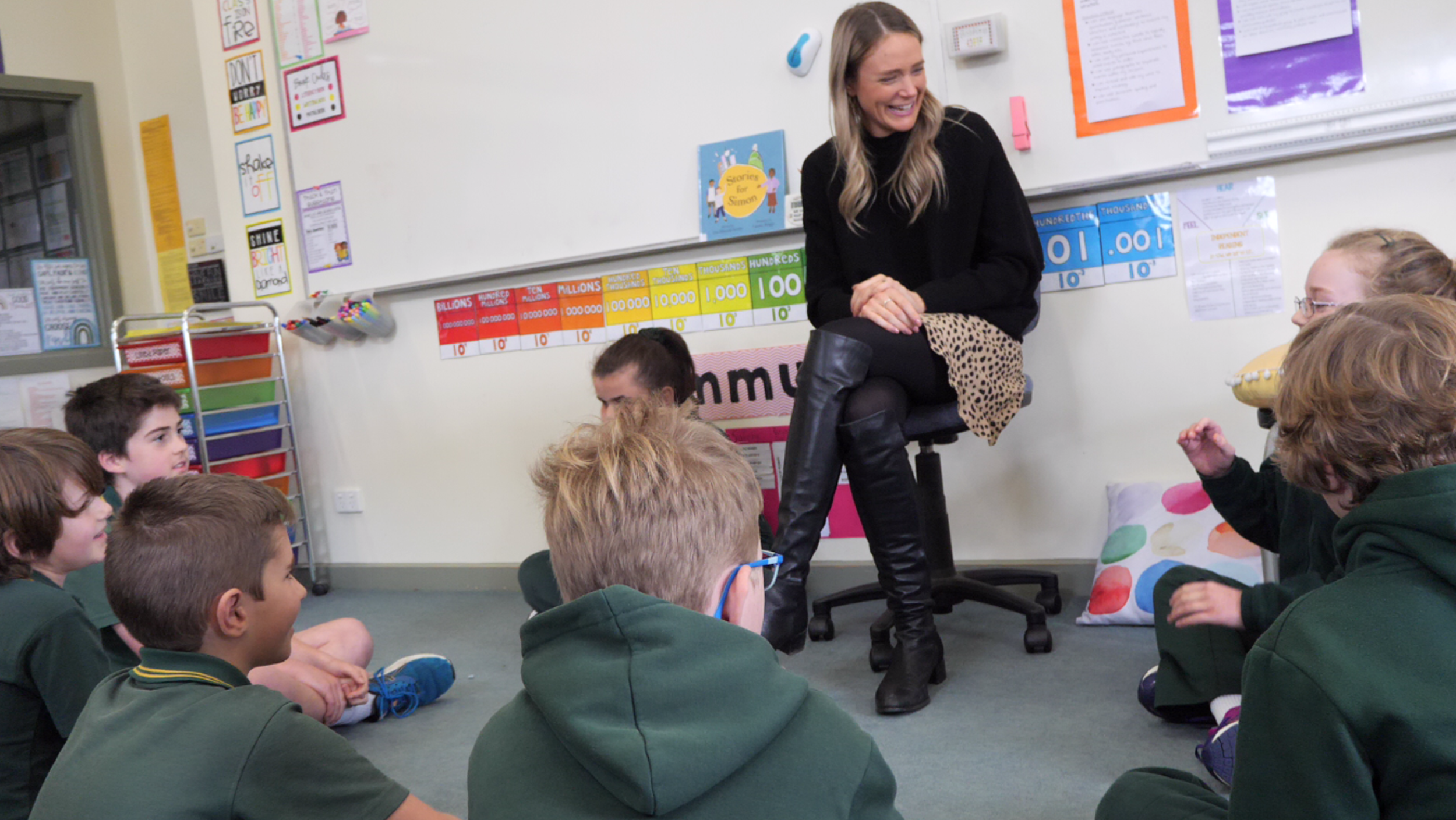Year 4
Yearly Overview
ENGLISH
Students develop sound English skills across all curriculum areas. In Reading and Viewing, they build upon a range of comprehension strategies such as inferring, summarising, making connections and asking questions. These strategies are taught through explicit, shared and modelled reading sessions. Students rotate through differentiated Literacy groups, according to their reading needs and goals. These engaging rotations are often connected to our topic of Inquiry for each term and help embed key reading strategies. They frequently consist of a teacher guided reading group, a digital literacy task, a Speaking and Listening activity, and an Independent Reading group. Students read and complete written and verbal responses, that allow them further practise at implementing the current reading strategy being taught.
In Writing, students are taught to effectively structure and write a variety of text types, including snapshots, recounts, narratives, persuasive texts, explanations and letters. They engage in lessons that develop their skills in spelling, sentence structure, grammar and vocabulary use, editing and revising.
Speaking and Listening skills are embedded throughout the English and Inquiry curriculum, with all students engaging in exciting projects and presentations, Readers’ Theatre performances, podcasts, and whole class and small group discussions. Opportunities to further present to an audience are given through assembly presentations, work sharing across year levels and at school community events.
In Spelling, students are assigned weekly individualised spelling words based on spelling data, which is gathered through regular benchmark Spelling tests. Students practise these Spelling words daily in their Morning Work and within their weekly homework. Common Spelling blends and patterns are investigated through whole class, small group and independent activities, which utilise visual, sound and meaning strategies to ensure effective practice and spelling growth.
MATHEMATICS
With a strong focus on the four processes in Year 4, students continue to develop efficient written and mental strategies to assist them when working with large numbers. There is an important emphasis on achieving automatic recall of all multiplication and division facts to 10x10. Students enjoy a range of fluency games and activities, allowing them to consolidate their number fluency skills. They develop their understanding of graphing and statistics through gathering and interpreting data related to their everyday lives. Real-life application and creativity is paramount when approaching all Mathematical concepts, ensuring students have the opportunity to make connections between Mathematics and their own world. Students are also introduced to the concepts of area and volume and learn to apply formulas when calculating these. They explore angles that are less than, greater than and equal to 90 degrees, and identify angles in everyday situations. Students investigate the relationship between basic fractions and decimals, and place these accurately on number lines. Students interpret timetables, convert between units of time and investigate the use of 12 and 24-hour time for different purposes.
INQUIRY
In Term 1, our Inquiry Concept is entitled Communities. Civics and Citizenship is embedded within this unit where there is a strong focus on rules and laws, and their importance within all aspects of our lives. Students explore the different responsibilities of government within Australia and develop their sense of self by unpacking personal connections to their school, other communities and their country. They use collaboration and their developing Digital Technologies skills to research, script and record a podcast relating to a current community topic.
In Term 2, students are immersed in learning about Aboriginal culture during our Inquiry Concept of Relationships. They research and explore a wide range of elements of Indigenous culture, including understanding and researching The Dreamtime and important Dreaming Stories, Aboriginal art and symbols, significant Indigenous Australians, Indigenous food and bush-tucker, special celebrations, such as NAIDOC Week, National Reconciliation Week and the AFL Dreamtime Round. They also experience an engaging cultural incursion presented by an Aboriginal Elder. Throughout the term, students create their own Aboriginal Culture Books, displaying how they have built upon their understandings of Aboriginal culture and histories. Students proudly present these projects to the Year 3 students and teachers, further enriching their learning and purpose.
Our Term 3 Inquiry Concept of Exploration has a strong history focus. Students learn about the settlement of Australia, particularly the arrival of the First Fleet and gain an insight into the lives of convicts in the 1700s. During this unit students attend an exciting incursion where they themselves become Captains and Convicts. Students identify key timeline dates in the discovery of Australia, dating back as far as 65,000 years and they work in small groups to research a key world explorer.
Our Term 4 Inquiry Concept is entitled Environments. This unit has a Geography and Sustainability focus, where students develop their understanding of their location in the world in relation to countries in South America and Africa. Students learn about the contrasting environments within these two continents and within Australia, and investigate the differences in land size, climate, changing weather patterns, culture and native animals. They continue to build their Digital Technologies skill set, by creating a blog about a virtual exchange trip to a country in South America and Africa, which is shared with their peers and families, who are encouraged to engage with, follow and comment along the way!

